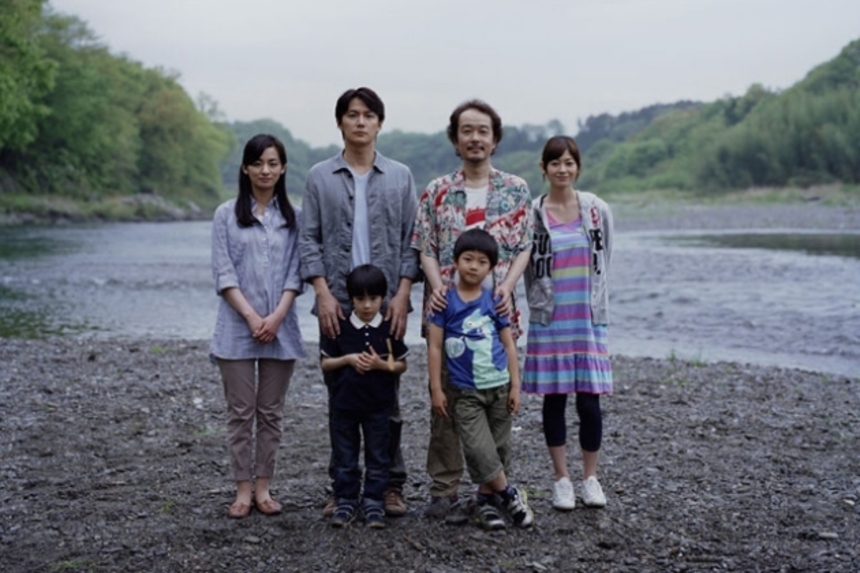Review: LIKE FATHER, LIKE SON Affectingly Debates Nature Vs. Nurture

It seems Kore-eda Hirokazu is incapable of making bad movies. The babies-switched-at-birth premise in films is nothing new. But he just makes it so darn affecting and poignant, avoiding all the clichés that go with this kind of blurry-eyed family drama.
His ability to get unbelievable performances out of his child actors is already legendary, ever since then 12-year-old Yagira Yuya won the Best Actor Award at Cannes in 2004 for his film Nobody Knows. But it really stumps me how Kore-eda manages that with kids every time. Like Father, Like Son is no exception. For example, I really need to know how he captures moments where child actors shriek in true delight while maintaining themselves in character. HOW? If Kore-eda's last film I Wish was more focused on childhood, Like Father, Like Son is more about parenting.
Ryota Nonomiya (Japanese TV star and pop idol, Fukuyama Masaharu) is a hard working architect who pushes his adorable, well-behaved son Keita a little too much to excel at everything. It's not that he doesn't love his son, but because he's always been pushing himself hard all his life to be successful -- so naturally that's the way it is supposed to be with everyone around him.
But, married to his career, he doesn't have much time for his family. When he and his wife Midori (played wonderfully by Ono Machiko, Eureka, Mourning Forest) gets an urgent message about the switcheroo from the country hospital where Keita was born six years ago, their tranquil life gets turned upside down.
They meet their counterparts, Saikis -- Yudai (Franky Lily) and Yukari (Yoko Maki) -- a country bumpkin couple managing a small electrician's shop. They have three adorable children, including Ryusei, Nonomiyas' real son. They happen to be a very loving, warm family. Both parties decide that it is best to switch them back before they get too old. Either way, it is going to be a scarring experience for both families.
In a funnily awkward scene, Ryota, in his arrogance of the well-to-do, unknowingly insults the Saikis by offering money to take both children in. Astonished by this suggestion, Yudai, a little older than his counterpart, walks up to him and without a moment of hesitation, bonks Ryota in the head. Midori apologizes profusely for her insensitive husband's behavior, of course. After that, they slowly agree to do family get-togethers and sleepovers leading up to a permanent switch-over. Even though Ryota says that the switcheroo is not a clear-cut matter, he makes up his mind never to see Keita again.
The children are confused and don't really know what's going on. Ryusei is often left alone in their posh, hotel-like, apartment with Midori, who is having a hard time getting used to him. She still feels guilty about sending Keita off and starting to love Ryusei. It bothers Ryota that Ryusei's unruly behavior and table manners are not like that of Keita's. It is quite apparent Ryota has been mostly absent and quite terrible at being a father to Keita in many ways compared to affable, warm, funny Yudai.
How could one just ignore your child of six years and take up another just because he is your own flesh and blood? The good old, Nature vs Nurture debate aside, Kore-eda makes you think about what it means to be a good parent. Ryota's own daddy issues float up to the surface during the process and him realizing his faults plays out beautifully and naturally as the families reunite with their children who grew up with them.
It's another warm, life affirming film by Kore-eda with the help of pitch perfect acting from everyone involved. It's one of the best films I've seen this year so far.
Review originally published during the New York Film Festival in September 2013. The film opens theatrically in New York on Friday, January 17, and in Los Angeles on January 24, via IFC Films. Visit the official site for more information.
Dustin Chang is a freelance writer. His musing and opinions on the world can be found at www.dustinchang.com.







